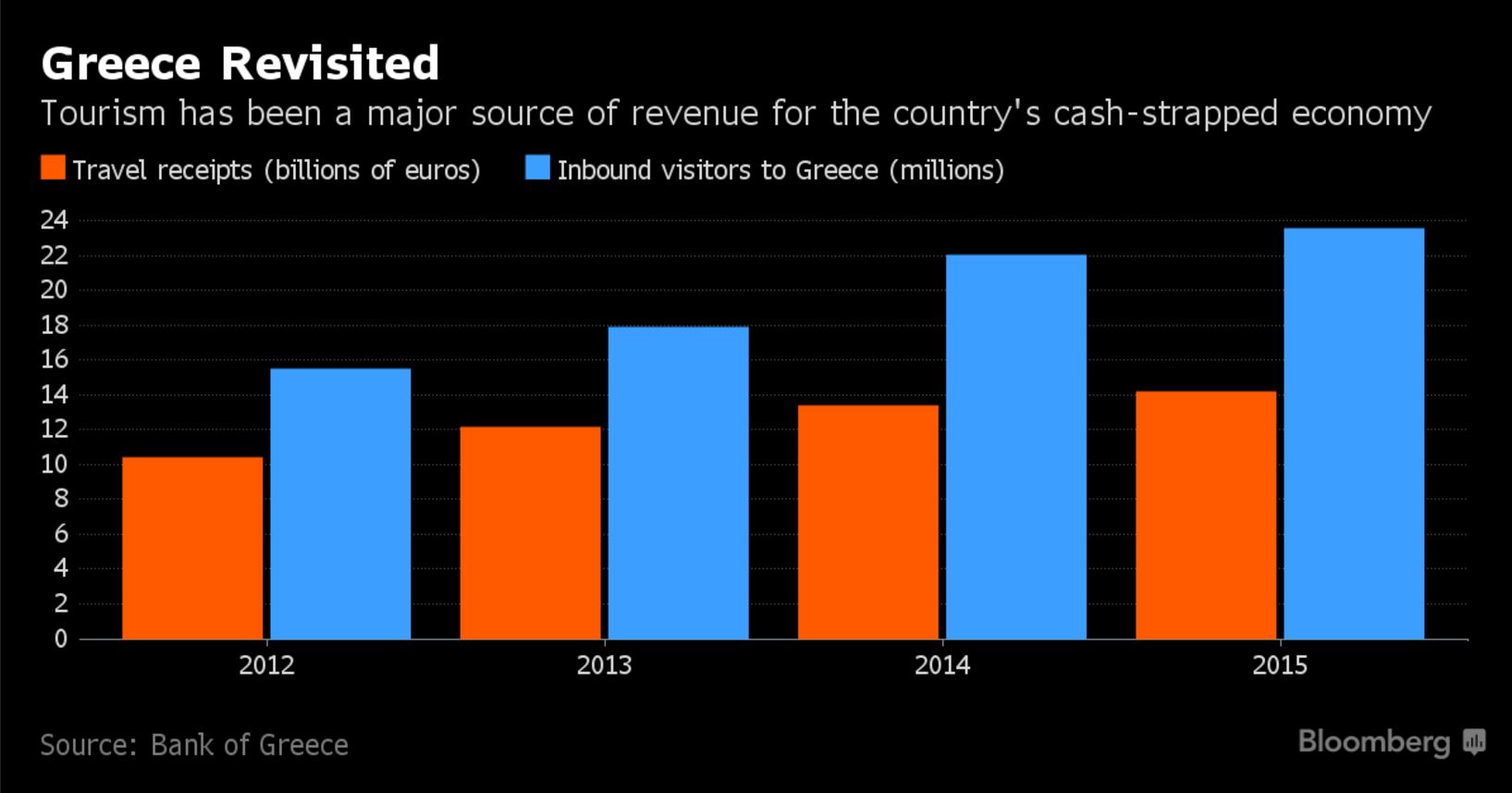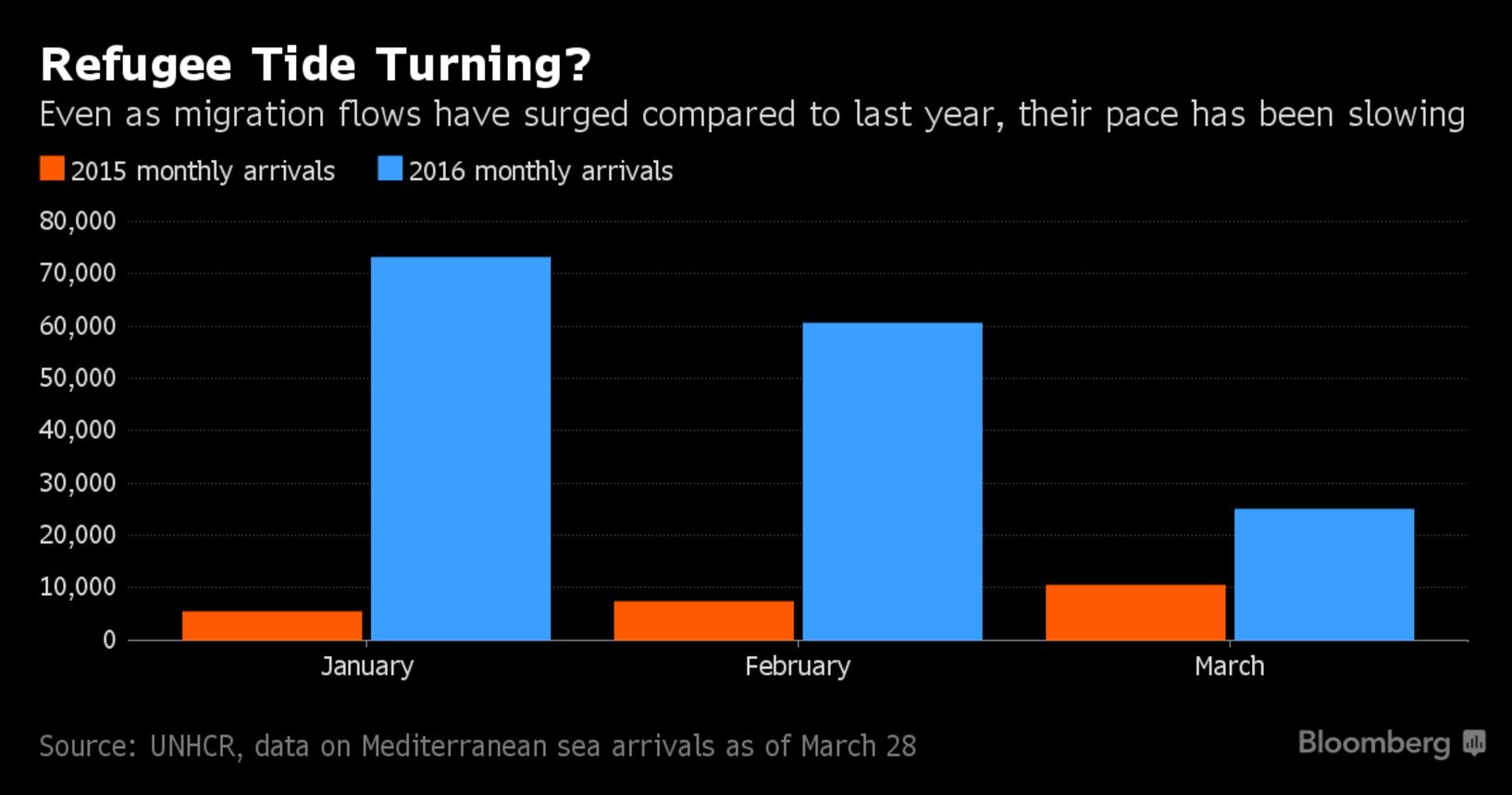After refugees, Greece now awaits the tourists Turkey is losing

When it comes to luring foreign visitors to sun, sea and a bit of history, Greece might be about to gain from Turkey’s losses.
The Greek Tourism Confederation expects the number of visitors to rise to a record 25 million this year and bring 800 million euros ($897 million) of extra income, Andreas Andreadis, president of the industry lobby group, said in an interview in Athens on Tuesday. Separately on the same day, Turkey’s Culture and Tourism Ministry reported a 10 percent drop in year-on-year arrivals last month, the most in a decade.
The old enemies have long competed for tourists as key drivers of economic growth, yet recently the industries in both countries have been more concerned about the repercussions from events further east.
For Turkey, a spate of bomb attacks in Ankara and Istanbul has compounded the effects of President Vladimir Putin’s ban on tour operators from sending his citizens to the country following a row over intervention in the five-year Syrian civil war. For Greece, tens of thousands of refugees started landing on its islands last summer as the entry point to a new life elsewhere in Europe.
Economy boost
Andreadis said he expects as many as 900,000 Russians to arrive in Greece and they will account for about half the increase in revenue. The refugee flow meanwhile has turned into more of a trickle since countries to the north of Greece shut the transit corridor.
While Andreadis made no comment on Turkey or its tourism industry, the expected influx of higher-spending Russian tourists couldn’t come at a better time for Greece as its economy struggles to grow and its finances still hang in the balance.

Tourism has been one of the few industries that kept growing during the crisis, with numbers rising to a record 23.6 million people last year.
Its total contribution to the country’s gross domestic product was 18.5 percent, almost twice the European average, according to the World Travel & Tourism Council. Andreadis said the increase will boost GDP by an extra percentage point this year, with revenue rising to 15 billion euros from 14.2 billion euros in 2015.
There are caveats. Andreadis, whose group represents 50,000 tourism-related businesses, said his forecast assumes a swift conclusion of negotiations between Greece and its international creditors about the terms attached to the latest bailout program, keeping the country in the euro, as well as continuing to staunch the flow of refugees.
Also, the government’s failure to legislate effective taxation on peer-to-peer services including Airbnb users results in an annual loss to public revenue of more than 200 million euros, he said.
“The question of ‘Grexit’ still exists, and in conjunction with the immigration crisis doesn’t project the image of stability that the country needs,” said Andreadis, who is also chief executive officer of Sani Resort in northern Greece.

Islands such as Kos in the eastern Aegean, which have been on the front line in the refugee crisis, will see a rebound from late bookings if the number of refugees landing on Greek shores keeps falling, Andreadis said.
Average daily arrivals to Greece dropped to 901 people in March, down from nearly 2,000 in February, according to the UN’s refugee agency. As well as the closing of the Balkan route, arrivals further declined following a deal between Turkish and European leaders for the return of irregular migrants making the crossing to Greece.
[Bloomberg]





